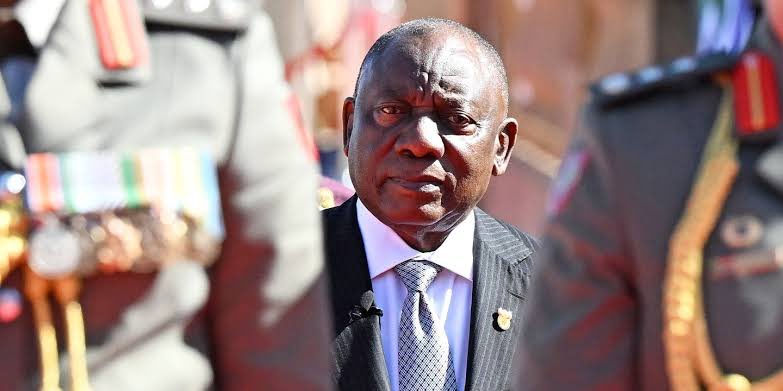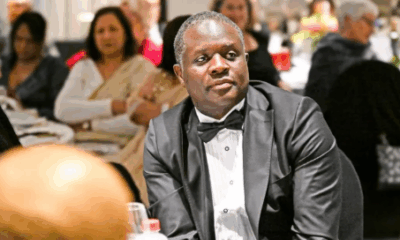News
Let the People Speak: Why South Africa’s National Dialogue Must Begin at the Grassroots

Analysts urge a bottom-up approach to tackle land injustice, inequality and restore public trust
There’s a buzz growing around President Cyril Ramaphosa’s call for a national dialogue. Scheduled to begin with a convention on 15 August, this gathering promises to bring together everyone from civil society leaders and business representatives to artists, traditional healers and community voices. The aim? To confront South Africa’s mounting political, social, and economic challenges.
But there’s a growing chorus of concern from academics, political analysts and community leaders: this conversation cannot and must not be top-down. If it is, it risks repeating history’s mistakes.
The Warning Signs from History
To understand the urgency behind these warnings, one needs to look back. South Africa’s first major national negotiation—the pre-1994 Convention for a Democratic South Africa (Codesa) was hailed as the dawn of democracy. But it came at a cost. The Sunset Clauses of that agreement allowed key structures of white economic and state control to remain intact, effectively postponing tough conversations on land ownership, wealth inequality and structural racism.
Political and heritage analyst George Tsibani believes the seeds of today’s unrest were sown during that compromise.
“Let’s not pretend the land issue was resolved. Codesa left it on the table,” he said. “A genuine national dialogue must address that injustice head-on, not tiptoe around it.”
The Soul of the Dialogue Must Be Public Participation
Dominic Maphaka, a political scholar from North-West University, supports the need for inclusive national talks. But he says they must genuinely reflect the voices of those who live with inequality daily—from youth struggling to find work, to rural communities still waiting for basic services.
“South Africans face shared challenges. Whether you’re in Soweto or in a Limpopo village, you’re dealing with unemployment, failing infrastructure, and crime,” Maphaka explained. “Ideology mustn’t hijack the process. This dialogue is about practical, people-first solutions.”
Can We Trust Government to Lead It? Some Say No
Some experts remain sceptical about government’s role in the process. Political analyst Lesiba Teffo didn’t mince his words.
“It’s being driven by the very entity South Africans distrust the most, the state. If government dominates this dialogue, it’ll collapse into another expensive PR exercise,” he warned.
Teffo suggests a provincial-first approach, where regional dialogues inform a broader national agenda. That way, local stories and priorities shape the national vision, not the other way around.
Mbeki Planted the Seed, But Who Will Water It?
The idea of a national dialogue didn’t start with Ramaphosa. Former president Thabo Mbeki floated the idea years ago. Ironically, Mbeki was once at the forefront of Codesa negotiations, along with Jacob Zuma, before Ramaphosa himself took the reins.
Now, decades later, Mbeki’s vision for a deeper, more inclusive national conversation may finally come to life—but only if it resists becoming another elite gathering in Sandton boardrooms or Cape Town hotel conference halls.
Social Media Reactions: Hope and Cynicism in Equal Measure
Online, South Africans are divided. Some, like @Kgadi_Mo on X (formerly Twitter), see this as a “chance to rebuild a broken country with all voices at the table.” Others are more cynical. “National dialogue? Sounds like another government tender in disguise,” quipped @Mpho_Thwala.
But even among sceptics, there’s recognition that the status quo can’t hold. Rising inequality, political fatigue and community unrest demand urgent collective action.
Land, Race, and a Future Worth Building
If the national dialogue is to mean anything, it must go beyond pleasantries. It must be prepared to talk about land—not just in abstract policy terms, but in real stories of displacement and inherited injustice. It must confront racial polarisation, not pretend we’ve moved on.
As Tsibani put it, “This must be Codesa 2, not a repeat, but a reckoning.”
The country is tired, yes, but not defeated. There’s still a chance to do things differently. The only question that remains is: will we listen to each other, or talk past one another again?
Ramaphosa’s National Dialogue Raises Eyebrows as Key Foundations Left Out
{Source: The Citizen}
Follow Joburg ETC on Facebook, Twitter , TikTok and Instagram
For more News in Johannesburg, visit joburgetc.com



























